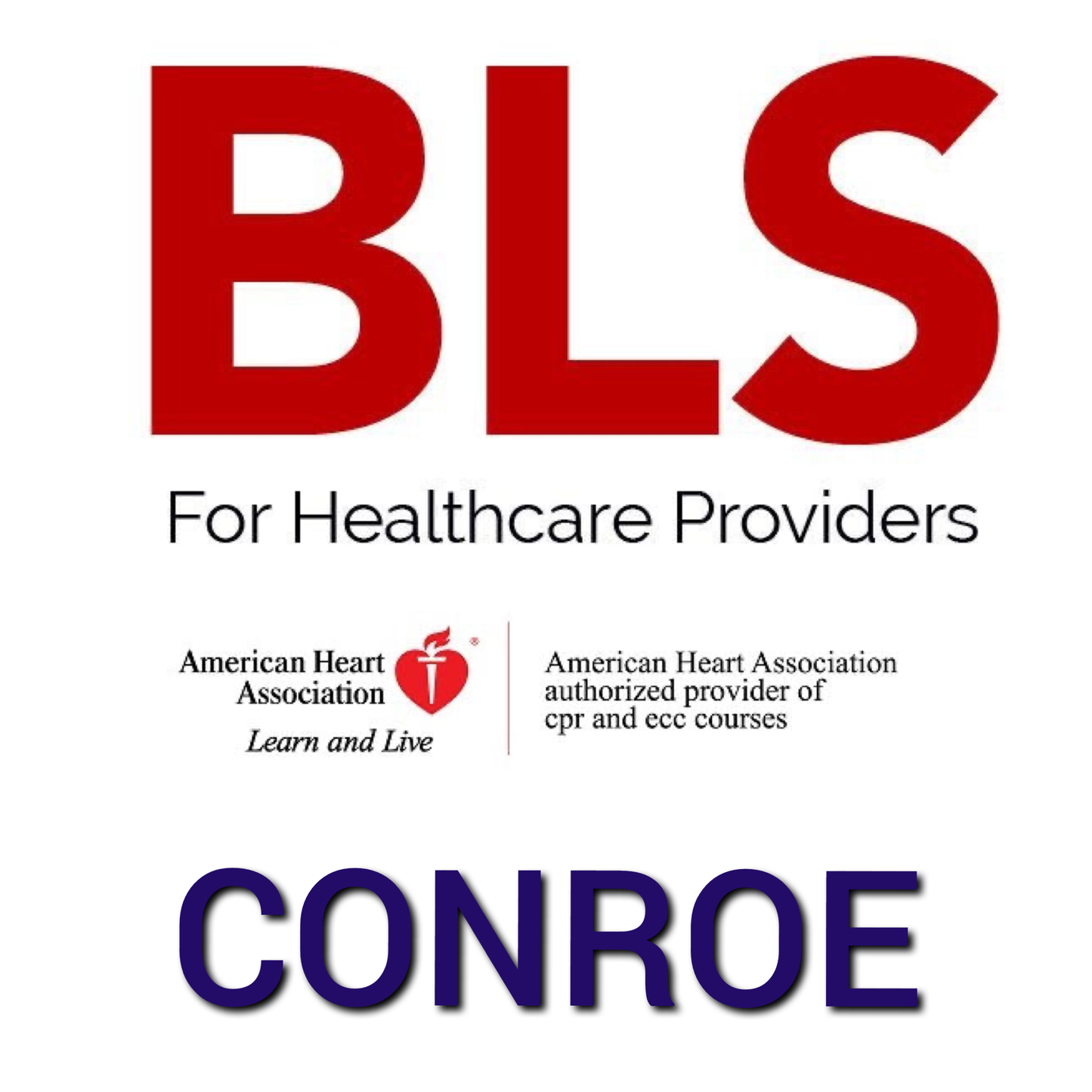1
/
of
1
BLS - Conroe
BLS - Conroe
New Certification HeartCode BLS and Renewal
American Heart Association
If you would like to pay in class please select "Reserve my Seat and Pay in Class" at checkout. You can pay with cash, check, Zelle, Venmo or credit/debit card.
Regular price
$60.00 USD
Regular price
Sale price
$60.00 USD
Unit price
/
per
Which AHA BLS format is right for me?
Which AHA BLS format is right for me?
- New Certification HeartCode BLS: Using a combination of self-paced, interactive online BLS classes and in-person skill sessions, our blended learning program gives you the ability to train on your schedule, improve your clinical decision-making skills, learn the latest science-based protocols, then demonstrate your skills to a certified instructor. Requires the purchase of HeartCode BLS online portion from AHA (sold separately). A digital student manual is included with your purchase from AHA.
- Renewal: requires a current BLS card. Includes an in-class skills session and exam. If you would like to forego the exam you can complete the Heartcode Blended Learning BLS online course listed above before class.
Can you come to our location?
Can you come to our location?
We offer training at your location, any day, any time, with only a 4 person minimum.
Couldn't load pickup availability
 American Heart Association HeartCode® BLS (Basic Life Support) is an American Heart Association (AHA) training program that provides a convenient and flexible way to learn the essential skills of adult and pediatric CPR, AED usage, and choking relief.
American Heart Association HeartCode® BLS (Basic Life Support) is an American Heart Association (AHA) training program that provides a convenient and flexible way to learn the essential skills of adult and pediatric CPR, AED usage, and choking relief.
- AHA BLS is designed for healthcare professionals and individuals seeking certification in basic life support.
- NOTE: The American Heart Association strongly promotes knowledge and proficiency in all AHA courses and has developed instructional materials for this purpose. Use of these materials in an educational course does not represent course sponsorship by the AHA. Any fees charged for such a course, except for a portion of fees needed for AHA course materials, do not represent income to the AHA.
- Please try to arrive at class 10 minutes early to check-in.
- Class Location: 100 Commercial Circle, Building A, 2nd Floor, Conroe, Texas 77304 (FM 2854 1 Mile West of the Conroe Central Library. Across the street from SRM Concrete formerly Yancy Concrete). While the building is handicap accessible, the training center is on the second floor. If you need accommodations for stairs please reach out.
- You should wear comfortable, loose-fitting clothing that allows for easy movement. You may need to bend, stand, lift, and work on your hands and knees.
 Texas CPR Lady & Associates is aligned with Loving Heart Community Training Center in Henderson, Texas, USA.
Texas CPR Lady & Associates is aligned with Loving Heart Community Training Center in Henderson, Texas, USA.Share


